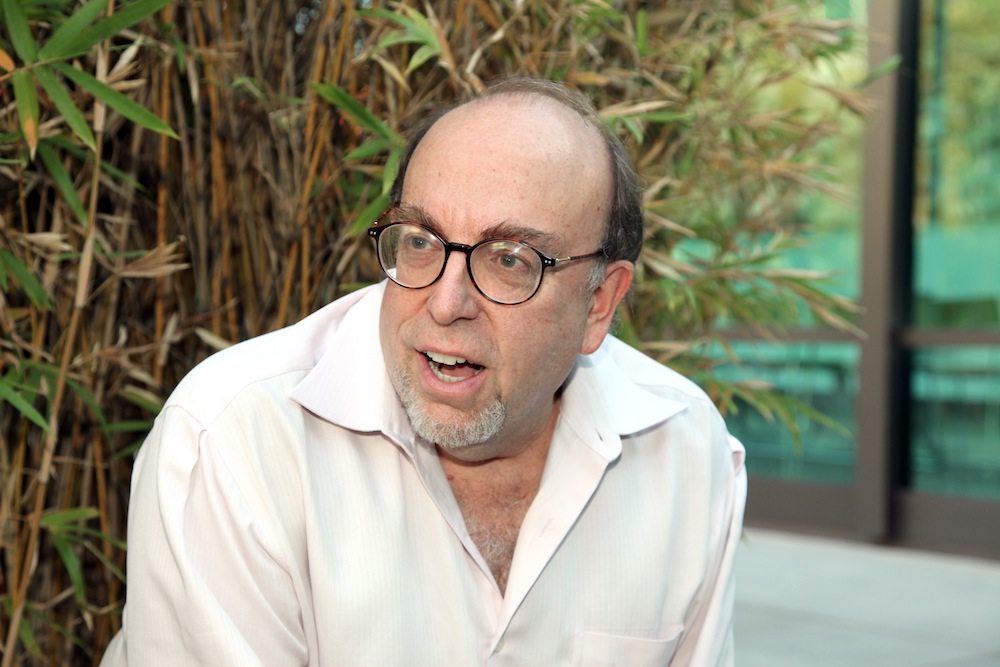
Harold Meyerson is a Washington Post columnist and editor of American Prospect magazine; he grew up in Los Angeles and was the longtime editor of the L.A. Weekly. Before talking about the future of the labor movement in America, he figured out (eventually) when he had last yelled at someone, explained why the salad dressing that best describes him is ranch, and gave a shout-out to an obscure musical he loves (though it’s not quite as good as West Side Story).
Who is the one person living or dead you’d love to have a beer with?
That invokes questions of criteria—what do I use? Maybe Oscar Wilde. Or Jonathan Swift.
When’s the last time you either yelled at someone or were yelled at?
Oh, that’s been a while. I have what is at least superficially a yell-free life. My daughter is 31, so I haven’t yelled at her in over a decade, I think. I talk to my mother, who is 99 years old, very loudly; I don’t think it can be construed as yelling, but if you were very far away you might construe it as yelling. My mother, by the way, used to yell at the CBS Evening News when she was angry at current events. That’s an evasive answer. Oh, I know—it was at the Washington Nationals ballpark, yelling at an umpire. He did not yell back at me.
What’s the worst job you’ve ever had?
When I was in college, and back out here for the summer, I had one job driving around for a movie location scout, and he had a mother who was almost 99, who he brought along after he put padding on the seats so she wouldn’t urinate on the seats, and the three of us drove around. It was definitely a bizarre gig.
What salad dressing best describes you?
Ranch. I’m a flavorful white.
When you visit Los Angeles, what spots do you always return to?
I lived here for almost half a century, so my default is to go to restaurants which have closed in my absence. I used to go to Ciudad all the time. I like to pay at least one visit to Langer’s, because it has better pastrami than anything on the East Coast. And I like jazz at the Jazz Bakery, which is currently in an interregnum; the old one closed, but I’m told the new one will open next year. I also used to go to all these bookstores that are no longer around. I still go to Book Soup. And when I fly into LAX, depending on the time of day, I sometimes go have a meal at Pann’s, a Googie-style coffee shop on La Tijera by La Cienega.
What’s your hidden talent?
I’m really good at math, and I never use it.
Did you have any nicknames as a kid?
My dad would call me Hal, which isn’t much of a nickname for Harold.
What book have you read the most number of times?
Every couple years I read Jonathan Swift’s A Tale of a Tub. It is an obscure comic masterpiece that I think somehow describes a condition of postmodernity even though it was written in 1704.
What’s your favorite musical?
I wrote a bio of [lyricist] Yip Harburg, as you may know. I still think the best musical is probably West Side Story. Yip’s is Finian’s Rainbow. There is a wonderful, obscure 1932 Ernst Lubitsch musical, One Hour With You, which I dearly love. It’s a musical that has five characters in it; that’s it. It’s kind of a closet musical—in the sense of concealed. It’s a small little thing.
What’s the best gift you’ve ever given someone else?
I had a wonderful cousin named Larry, and there was one particular Chanukah where we each found this obscure photo book and gave it to each other without knowing. It’s called As They Were, and it’s pictures of significant people when they were babies or small children. But who is deemed a significant person in this book is really a classic reflection of late-1960s sensibilities.
What word or phrase do you use most often?
It’s not the word or phrase I use most often, but it’s a mark of how seriously screwed up the economy is that I write the word “capitalism” a lot more than I used to, and as much as what’s going wrong is American capitalism. I didn’t used to write that, even though I believed it ideologically. Everything I believed in and suppressed has become kind of relevant again. Either that, or just regular expletives.



